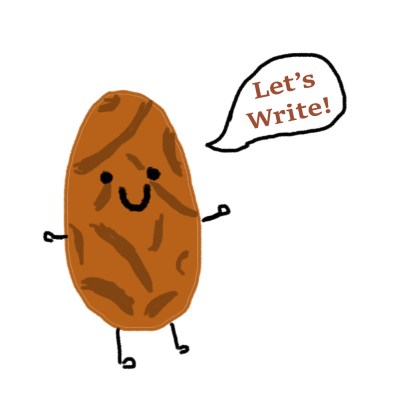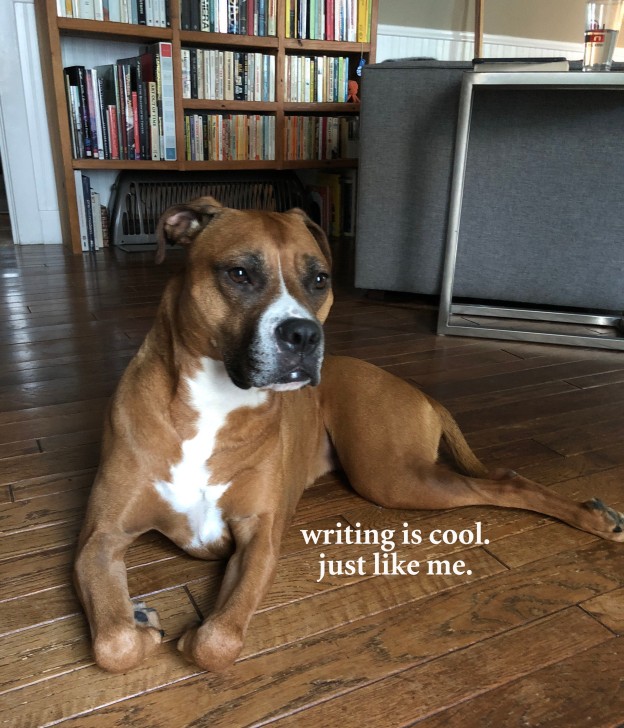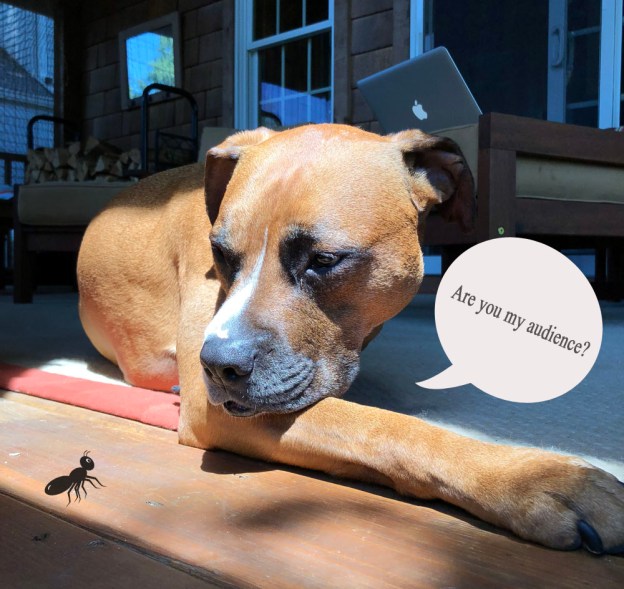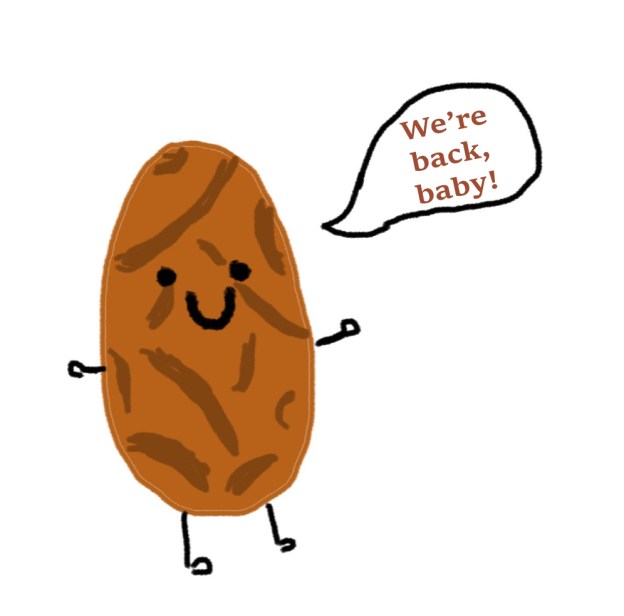Oh, hi there. Remember me? That person who used to blog and run a writers’ group and be semi-productive sometimes? Well guess what? I’m back!
Due to circumstances I will explain later in greater detail, I let my blog dry up into a sad little raisin and then I dropped it behind the couch. But it’s not unsalvageable. I am going to take that raisin, wash it off, and make it into something special!
And that very special raisin is a new round of the Lake Projects Online Writing Group, which starts…right…now!


The game is the same (eight weeks of hard-core writing accountability — BOOM), as are many of the players, but we have some new-to-the-group writers among us, so please make them all feel at home: Alissa, Connor, and Joe. Welcome!
Each week, in addition to getting each writer’s project updates, we’ll have a short post on writing or productivity. This week, though, is primarily devoted to introducing the group and their summer goals. And here they are:
Aliena
My current long-term project is to actually start writing again. It’s been a very long time since I’ve written anything and I’d like to get back into the habit.
My week 1 goal is to write a scene. Any scene. Any length. It just has to be start to finish.
Alissa (new to the group!)
OK, so my big picture objective is not to let this story I’m working on for the short story farming memoir fade into oblivion. I think loosely, I’d like to just make progress on it, which is a lot more than I’ve done for the last two months. If you want me to define a goal more than that (I do not, but go for it!) I’ll say I want to write 20 pages for the next story chapter.
Short term, like first week, I just want to write for 2 hours on the piece.
Anne
Course re-writes: I need to review previous course versions (3 major course versions so far) and create a whole new set of assignment pages for the three-course sequence (set number 4)!
Bev
Goals, goals…What are my goals? Why was man born but to suffer and die? My goal for next week is to get a letter that I wrote months ago in the mail. Surely I can do that! (Don’t call me Shirley.) And then I am going to open up an old file of a letter I started long ago and WRITE SOMETHING. I will finish said letter before the end of eight weeks, swear to God!
Also I will do my weekly blog posts. And if I feel really, really brave, I will once again take up the task of finding agents and sending query letters for my memoir. (I can feel your bravery from here, Bev!)
Connor (new to the group — goals coming soon!)
Joe (new to the group — goals coming soon!)
Laura
My overall goal is to adhere to a writing schedule that I can keep consistent throughout and beyond the summer. Since I like using the pomodoro technique, I think I’ll frame my work using that instead of words, pages, or finished product. If I can stick to my tomatoes, I should be able to produce. (that pun was not intended but I just saw it and think it is amazing, so you’re welcome, world! [FYI I will continue to wield my power as czar of this writing group to shower you with terrible wordplay.])
My week one goal is to write one blog post (not counting this one) and to do three pomodoros worth of writing that are not for the blog.
Lisa (goals coming soon!)
Mike
Overall goals: finish revisions on an in-progress short story to prep for submission by end of June. Once that’s done, finish the first draft of a novella I started that is the expansion of a short story I wrote last year.
Week 1: Rewrite middle section of the short story.
Rachel
Overall goal: write a creative nonfiction short story. (Background: most of my published writing is academic or straightforward essays, and I’d love to challenge myself to write something more creatively and get out of my comfort zone a bit.)
Week one goal: decide on the topic, scope, audience, and word count.
Robert
My summer plan is 1,000 words a day, which I’ve been doing for the last few weeks, except for when I’m traveling. My goal this summer is to finish the draft of 100 Conversations. (Robert! I have a Louise Brooks book for you; thank you for reminding me!) I’m at 72,000 words, so I’m getting there.
My weekly goal is then 7,000 words.
Sarah
Long term goal: An MCC 101 course ready to be tested in August.
Week One Goal: Lesson (to include intro, content, resources, discussion boards, etc.) on Critical Thinking (probably I need to narrow that down [not right now, Sarah…]) and Edits on the lesson on Rigor.
Don’t those goals sound great?! I think they do! And I am excited to get started.
But before I go, I want to share a bit about something I hope will get me working more productively, both for my job as well as for my fun writing (ha! no writing is fun! [j.k. I love writing except for the 99% of it that I hate because it is so hard]).
Last summer I listened to an episode of Hidden Brain, one of my favorite podcasts, on something called “deep work,” a term coined by the writer and professor Cal Newport.

Newport’s definition of deep work is “Professional activities performed in a state of distraction-free concentration that push your cognitive capabilities to their limit. These efforts create new value, improve your skill, and are hard to replicate” (Newport 3).
On the podcast, and in much more detail in the book, Newport talks about the tremendous value of deep work in a variety of fields, and also how difficult this kind of work is to achieve in a world that places so much value on immediate feedback and lacks acceptance of someone closing herself off for potentially hours at a time in order to concentrate fully on very focused, detailed work.
Newport’s book pairs beautifully with another book I recently read by Susan Cain, a book called Quiet: The Power of Introverts in a World That Can’t Stop Talking. Cain’s thesis is that the many people prefer to work in quiet, sometimes isolated conditions and that these people frequently produce things of tremendous value; and Newport’s hypothesis is that the value of this kind of work will only increase in the coming years.
I feel validated and excited by both of these ideas and both of these books.
Now, how do we get the world to give us this space, this quiet so that we can do our necessary deep work as writers? Or, rather, how do we take it?
Because take it we must.
We’ve talked on this blog before about the importance of the habit of writing. It’s damn important. Whatever your habit looks like (daily, only on Monday and Thursday mornings, only on Tuesday and Wednesday nights after 11 p.m., Saturday mornings on the train, Friday afternoons in the office, for an hour in a park, for two hours on the roof of your kid’s treehouse) you need to figure it out and then stick to it. Take that time. Do not have access to your phone. Do not have your email accessible. Do not answer to anyone, for at least 25 minutes (one pomodoro). Everyone in the world can do without you for at least 25 minutes. Seriously.
And then, make that your habit, and when you take a break from all of your productive deep work, check out Newport’s and Cain’s books.
Until next week, you gorgeous raisin writers!

Newport, Cal. Deep Work: Rules for Focused Success in a Distracted World. New York:
Grand Central Publishing, 2016.


































